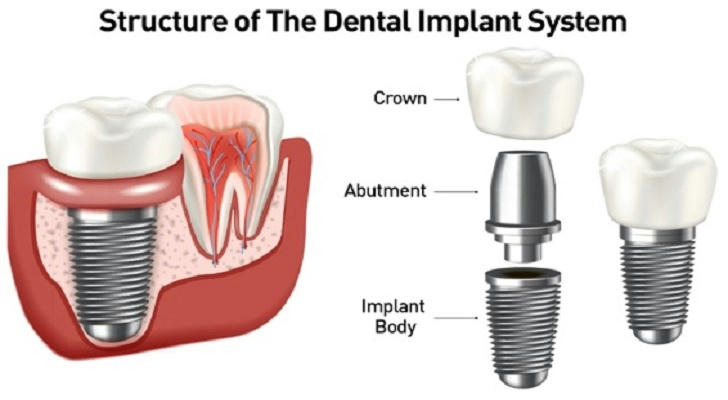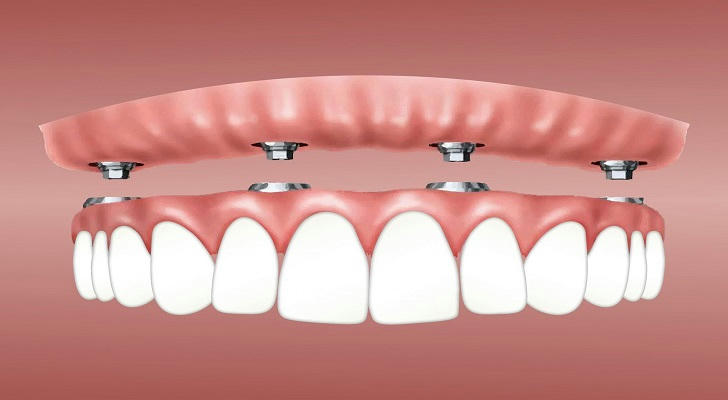Maintenance and Care of Dental Implants
Dental implants offer a solution that closely resembles natural teeth in terms of aesthetics, sensation, and functionality. However, the success of an implant is not only dependent on the surgical procedure but also on meticulous aftercare and maintenance. This article delves into the maintenance and care of dental implants, including daily hygiene practices, professional cleanings, and how to handle potential issues.

Basic Principles of Implant Care
The principles of implant care are similar to those of natural teeth, focusing on maintaining good oral hygiene. Patients should brush their teeth twice a day, use dental floss or interdental brushes to clean between teeth, and have regular dental check-ups. Additionally, avoiding hard foods on the implant site can reduce the impact and pressure on the implant.
Specific Measures for Implant Maintenance
- Daily Gentle Cleaning: Use a soft-bristled toothbrush and non-abrasive toothpaste to brush twice daily, ensuring gentle care to avoid damaging the implant surface.
- Professional Dental Cleanings: Schedule regular appointments for professional cleanings every six months to a year to manage plaque and tartar buildup.
- Regular Dental Check-ups: Make routine visits to the dentist for X-rays to monitor the implant's integration with the jawbone and overall oral health.
- Avoid Hard Foods: Refrain from chewing hard foods on the implant site to reduce pressure and potential impact on the implant.
- Use of Interdental Brushes: Employ interdental brushes to clean between teeth and around the implant, enhancing daily hygiene practices.
- Antimicrobial Rinses: Incorporate an antimicrobial mouthwash into the oral care routine to reduce bacteria and prevent infection.
- Education and Awareness: Stay informed about the importance of implant care and the consequences of neglect to maintain long-term implant success.
- Lifestyle Adjustments: Make necessary dietary and lifestyle changes, such as quitting smoking, to improve the health of the implant and surrounding tissues.
- Follow-up Care: Adhere to the dentist's follow-up care plan, including any necessary adjustments or treatments to ensure the implant's stability and functionality.
Early Identification and Management of Implant Issues
- Regular Monitoring: Patients should regularly check the implant area for any signs of redness, bleeding, or discomfort.
- Prompt Medical Attention: Seek medical help immediately if any abnormalities are detected around the implant.
- Signs of Failure: Be vigilant for symptoms like implant mobility or discomfort during chewing, which could indicate potential failure.
- Gentle Cleaning: Use a soft-bristled toothbrush and gentle toothpaste to clean the implant area to prevent scratches.
- Professional Cleanings: Schedule regular professional cleanings every six months to a year to remove hard-to-reach plaque and tartar.
- Routine Check-ups: Visit the dentist for routine X-rays to monitor the integration of the implant with the jawbone.
- Avoiding Misconceptions: Understand that implants require the same care as natural teeth to prevent complications like peri-implantitis.
- Specialized Tools: Use cleaning tools specifically designed for implants to avoid damaging the implant surface.
- Success Rates: Be aware that while success rates are high, failure can occur if proper care is not followed, as seen in cases of inflammation and bone loss.
- Long-term Success: The long-term success of dental implants depends on adherence to care procedures and daily maintenance.
- Collaboration with Dentist: Work closely with the dentist to follow recommended care tips and improve the implant's survival rate and functionality.
Misconceptions About Implant Maintenance
- Misconception 1: Implants do not require maintenance. In reality, implants require the same care as natural teeth; otherwise, complications such as peri-implantitis may arise.
- Misconception 2: All cleaning tools are suitable for implants. Using inappropriate cleaning tools can damage the implant surface; it is recommended to use tools specifically designed for implants.

Real-life Case: The Importance of Adhering to Post-Implant Care
Meet John, a 55-year-old patient who underwent dental implant surgery two years ago. John was thrilled with the immediate results and the functionality his new implants provided. However, over time, John started to neglect his dental hygiene routine, often skipping brushing at night and not flossing regularly. He also resumed his habit of chewing hard nuts, which he had been advised to avoid.
One year into his recovery, John began to notice discomfort and swelling around his implant site. Initially dismissing it as a minor issue, he soon experienced persistent pain and noticed signs of infection. Upon visiting his dentist, John was diagnosed with peri-implantitis, an inflammatory process that can lead to the loss of the implant.
John's case is a stark reminder of the consequences of not adhering to post-implant care instructions. His dentist had to perform a thorough cleaning to treat the infection and advised John on the importance of daily cleaning, professional maintenance, and dietary adjustments. John had to undergo a bone graft to repair the damaged area around the implant, which was a costly and time-consuming process.
This case highlights the critical role that patient compliance plays in the long-term success of dental implants. John's story serves as a cautionary tale, emphasizing the need for consistent care and regular dental check-ups to ensure the health and longevity of dental implants.
Conclusion
The long-term success of dental implants depends on the patient's adherence to care procedures and emphasis on daily maintenance. By following the recommended care tips and working closely with the dentist, patients can significantly improve the survival rate and functionality of their implants, enjoying a healthy and beautiful smile.
